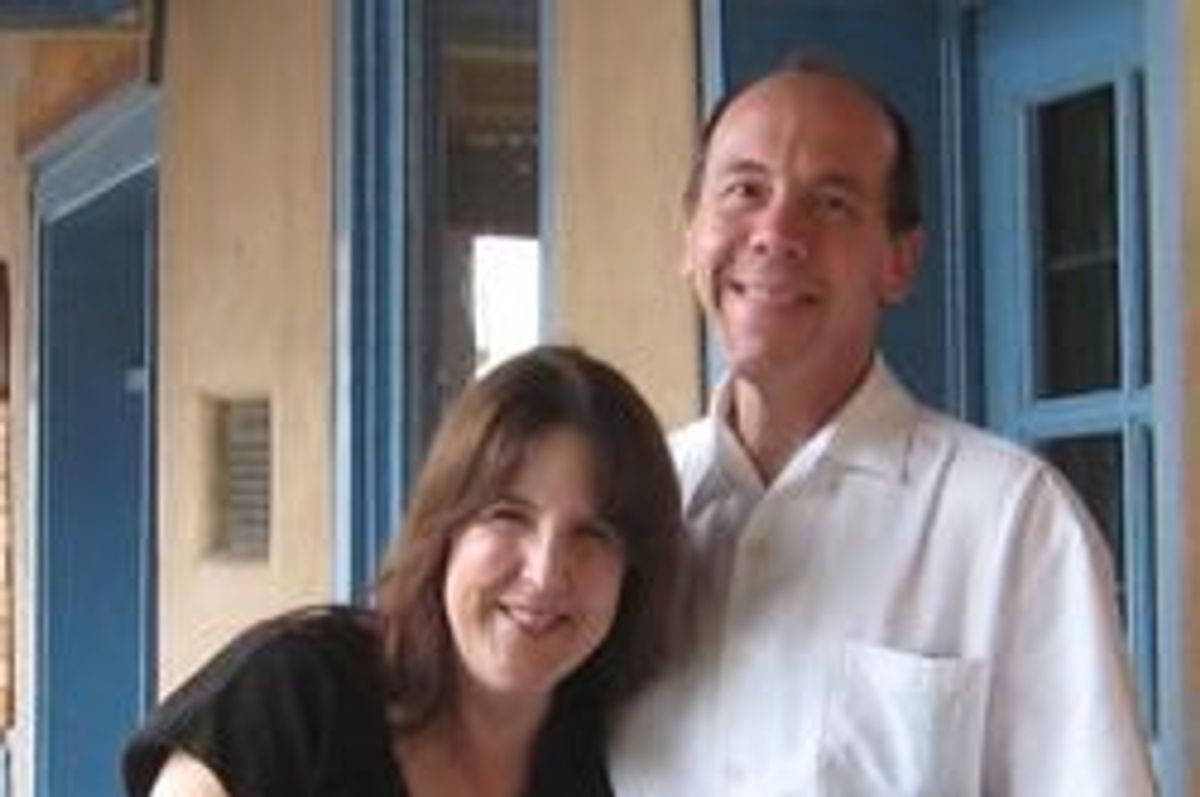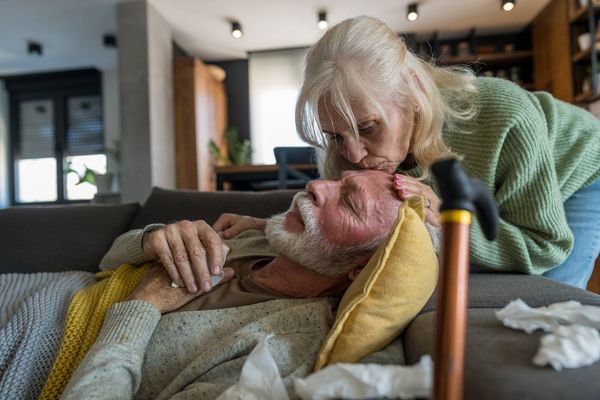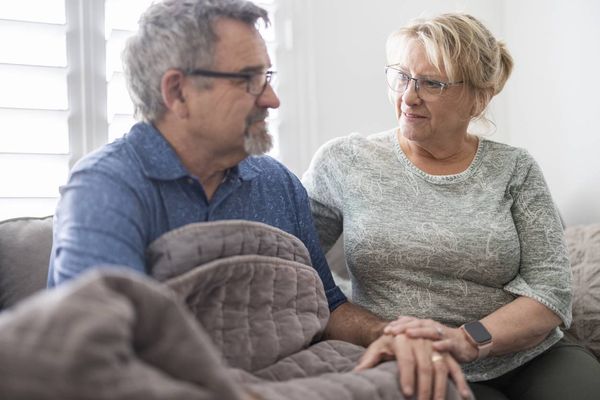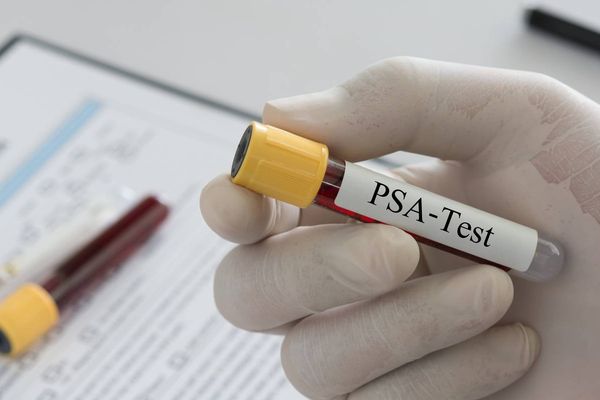By Karen Klein
When my husband tells me, "You didn't sign up for this," I think, yes, I did. Sixteen years ago, on our wedding day, I made a bunch of promises in front of a room full of people. One of those promises had something to do with "in sickness and in health." So yes, I did sign up for this. I just didn't think I'd be called upon to fulfill the worst version of that one. But you don't get to pick and choose.
Most people die of gastric adenocarcinoma (a type of stomach cancer) within about nine months of their diagnosis. We're closing in on month 30. But that's not necessarily a good thing; it hasn't been an easy 30 months.
When his bowel ruptured, at month number six, everyone thought he would die. Five weeks later I brought him home, weak as a kitten, and I thought that we were in the clear. What kind of god would put him through that hell only to have him die a painful, miserable death from stomach cancer? The next three months were good. He got stronger every day. Phew! We were gonna be OK! WE WERE GONNA BE OK!!
Then the vomiting started. On Thanksgiving Day, in month 12, he started on intravenous nutrition. In February, they finally opened him up to see what the problem was. By then he was barfing up bile four times a day, even though he wasn't eating. His esophagus was on fire.
He lost 50 pounds. He looked like one of those horrific heaps of skin-covered bones in those concentration camp photos. Not only was the cancer advancing, his intestines were a fused, useless mass of tissue. They removed most of that mess and placed a tube through his belly, into his stomach, to drain the bile into a bag he'd have to carry around for the rest of his life. But at least he wouldn't vomit any more. Nor would he ever eat food again. That's hard for a guy who was a foodie.
That summer, in month 21, he spent 30 days in the hospital fighting off viral and bacterial blood infections, something that kills one-third of all cancer patients. And while he was in the hospital, he got pneumonia. His oncologist put him on "Do Not Resuscitate" status and sent him home. He improved, and almost nine months later, he's still here.
His life revolves around how well the drain tube in his stomach is working. Sometimes it clogs, and when that happens, he's miserable. Every few weeks it either stops draining altogether or it falls out, and we make an emergency run to the hospital to get it replaced. He spends his days sitting on the couch. The only time he leaves the house is to see the doctor.
He feels awful all the time. He's on painkillers that wear off too soon, and the insurance company won't allow more than what they think he should have. The pain is getting worse. He always has the taste of bile in his mouth, and his mouth is always parched-desert dry because he can't drink anything. It's too dry to tolerate medical marijuana, which might ease his pain. And it's too dry to kiss me. My husband will never kiss me again. Ever.
Three weeks ago he turned 51 years old. Three years ago he raised tens of thousands of dollars for the Leukemia and Lymphoma Society by hiking with Team in Training. He had Hodgkin's disease when he was a teenager and he survived. He wanted to give something back. And his mom died of a CNS lymphoma. We buried her five days before his bowel ruptured.
I'm his caretaker, his only caretaker. We don't have any family within 2,500 hundred miles. We couldn't have kids because the treatment they gave him to cure his Hodgkin's disease left him infertile (it also gave him this cancer).
I'm lonely. I'm scared. And depending on the day, I'm either angry and resentful or grateful that he's still with me. He's my best friend. It's always just been just the two of us; we're as close as two people can be. Cliched, perhaps, but true just the same. And it's hell because no amount of love or money can save him.
For the past 20 years I've worked as a molecular biologist, so I decided to put that knowledge to use and I became a nutrition counselor. In the early days, I thought I could save him with nutrition, but I can't help someone who can't eat.
The cancer won, so we're waiting. We're waiting for him die, but we don't talk about it. We don't put it into those words, but we both know that that's what we're doing. One day he'll be gone, probably sooner rather than later, and part of me will breathe a sigh of relief. He won't be in misery anymore.
But he won't be here to make me laugh. He won't be here to say, "Hey Cutie," when I walk into the room. He won't be here so I can look into his eyes and tell him how much he means to me without saying a word. I hope I remember him on a hiking trail surrounded by the gorgeous red canyons of Utah or the pretty little mountain lakes of Colorado, rather than lying in his bed, sick and weak. But I really don't know. Time will tell.
I made a bunch of promises in front of a room full of people, and I'm keeping every last one of them. I just wish I had 30 more years to do it.
Karen Klein is a molecular biologist turned nutrition counselor, specializing in disease prevention and healthy aging. Her clients live wherever they choose. She resides in Vista, California, where she lives with—and loves—her husband, two diabolically smart dogs and a Vitamix blender.

Caring for Husband With Stomach Cancer Is a Labor of Love
Apr 01, 2013
Jul 12, 2023
Real Women, Real Stories



